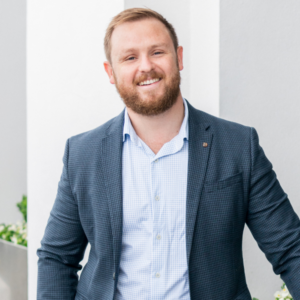At London Tech Week, Alex Pell, Technology Editor at the Evening Standard, sat down with Anne Phelan, Senior Vice President of Drug Discovery at GSK, to discuss the radical ways AI is transforming how we discover and develop medicines. Below is an edited excerpt from a transcript of their conversation.
💬 Alex Pell:
Let’s start with the basics. What actually is a drug, and what do you mean by a drug target?
👩🔬 Anne Phelan:
It’s more complicated than it sounds. The human genome has around 20,000 genes, but they encode over 100,000 proteins—and it’s those proteins that keep our cells healthy and communicating properly.
Now, if any of those proteins get disrupted—maybe by a genetic mutation or other dysregulation—it can turn a healthy cell into a diseased one. That’s where we step in: we need to identify the exact protein involved in a given disease and design a drug that can precisely modulate its function.
But with over 100,000 proteins all interacting in different combinations, it’s like finding a needle in a molecular haystack.
💬 Alex Pell:
So, it’s kind of like a murder mystery. Not only do you have to figure out who did it, but also how and where?
👩🔬 Anne Phelan:
Exactly! And there’s not just a handful of suspects—there are thousands. That’s what drew me into this work. It’s the world’s most complex puzzle. I’ve always wanted to apply my background in genetics to real-world problems, and drug discovery is the perfect challenge.
💬 Alex Pell:
OK, the big question. How is AI actually helping to solve this?
👩🔬 Anne Phelan:
Data is at the core of everything we do in drug discovery. With today’s platform technologies and automation, we can generate massive amounts of high-quality data—from genetics and proteomics to transcriptomics.
AI allows us to reason over this data at a scale humans simply can’t. It pieces together complex biological networks, identifies meaningful patterns, and—crucially—it helps us pinpoint where things go wrong in diseased cells.
💬 Alex Pell:
So AI is not just about crunching numbers—it’s helping you come up with hypotheses?
👩🔬 Anne Phelan:
Yes! When we run machine learning models on our data, we typically see three outcomes:
-
Known hypotheses – Things we already suspected. That’s reassuring—it means the AI understands the biology.
-
Novel but understandable hypotheses – Ideas we hadn’t considered, but make sense once we see the data.
-
Completely unexpected hypotheses – These are fascinating. Sometimes we have no idea how the AI reached that conclusion… but we still test it.
And we’re now getting to the point where AI doesn’t just suggest what to study—it even proposes how to study it, including which experiment to run.
💬 Alex Pell:
That sounds like having a genius professor in the room—just spitting out wild ideas that sometimes might actually be brilliant.
👩🔬 Anne Phelan:
Exactly. But as scientists, we’re naturally sceptical. We test everything. Even the most exciting hypotheses go through rigorous experimental validation.
💬 Alex Pell:
But AI can be a bit of a black box. How do you trust the output, especially in a field like medicine where accuracy is vital?
👩🔬 Anne Phelan:
It’s a fair point. That’s why explainability is becoming critical. In our field, “just trust the model” doesn’t fly.
We now use explainable AI—models that can justify their predictions. For example, the AI might say, “This protein is expressed in this cell type, which is associated with this disease, supported by these three peer-reviewed studies.” That way, we can see the logical steps and assess the evidence ourselves.
💬 Alex Pell:
And beyond AI, are there other technologies you’re excited about?
👩🔬 Anne Phelan:
Definitely. One that’s really powerful is CRISPR. Most people think of it for gene editing in the clinic, but we use it pre-clinically too. It lets us turn off every gene in the genome, one at a time, to see what happens. That’s incredibly useful for understanding disease biology.
Combined with AI, it’s like having a full toolkit to interrogate the entire genome efficiently and intelligently.
💬 Alex Pell:
Final thought—what excites you most about where this is all going?
👩🔬 Anne Phelan:
The convergence of data, AI, and biology is accelerating drug discovery in ways we couldn’t have imagined a decade ago. It’s not about replacing scientists—it’s about giving us superpowers.
We still ask the questions. But now we’ve got technology that can help us find better answers, faster—and bring real hope to patients sooner.
🎯 Takeaway:
The future of medicine isn’t just data-driven—it’s AI-accelerated. And as Anne Phelan makes clear, it’s the combination of human insight and machine intelligence that’s unlocking the next generation of life-saving therapies.








